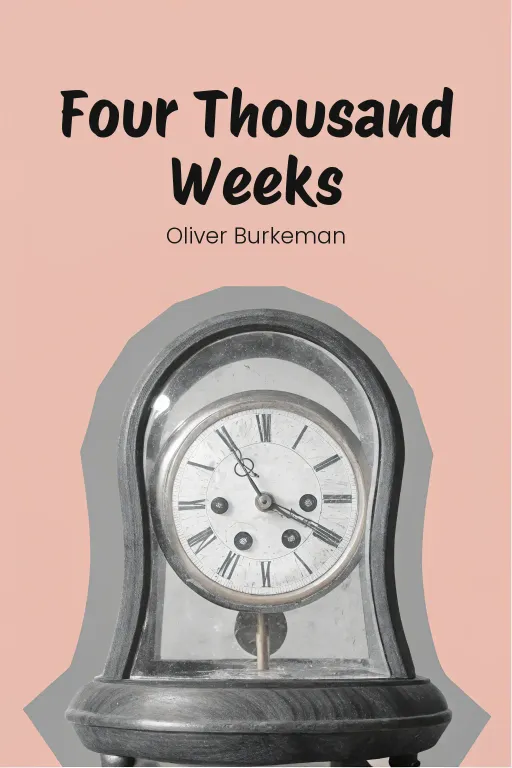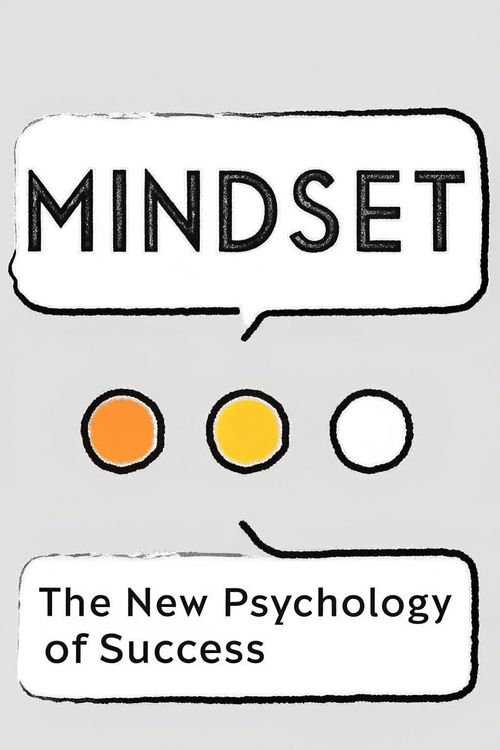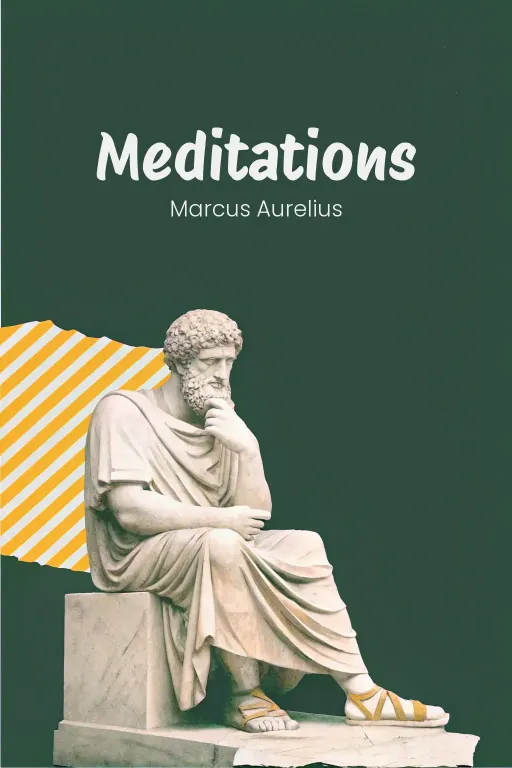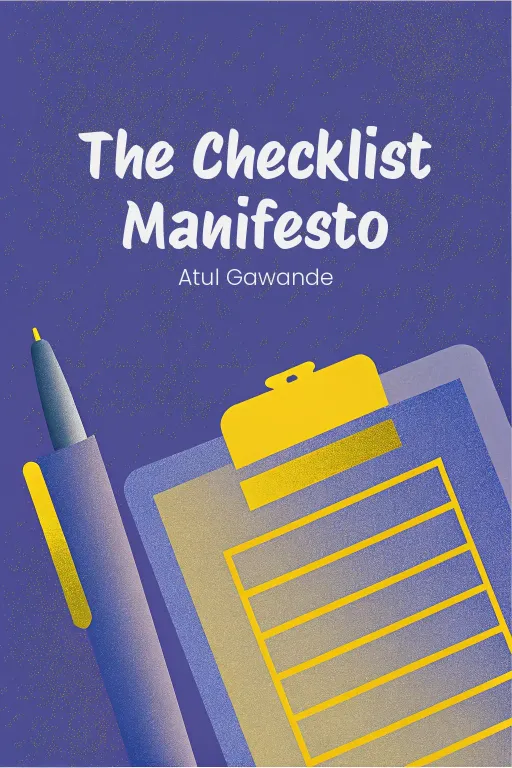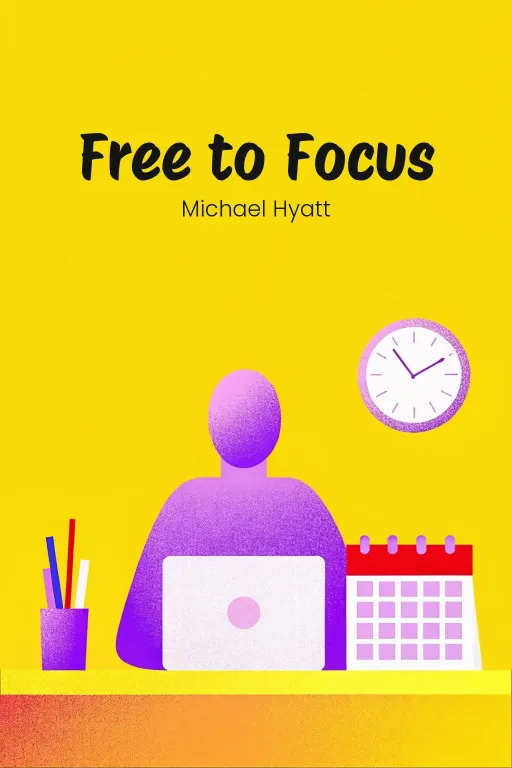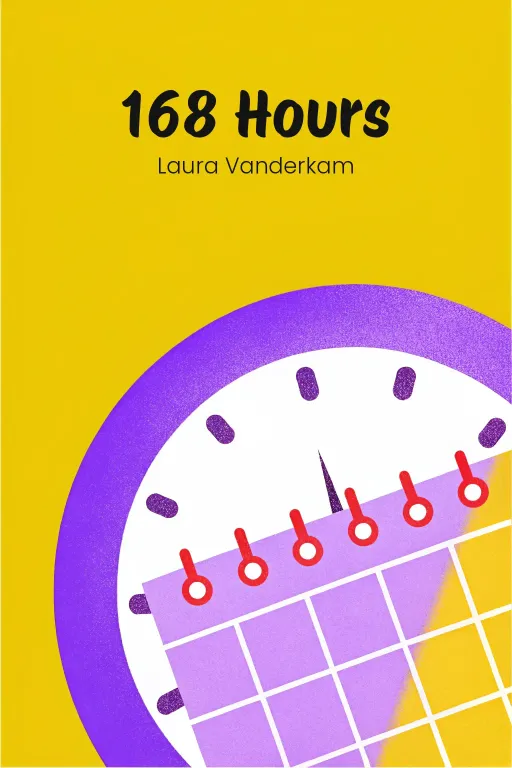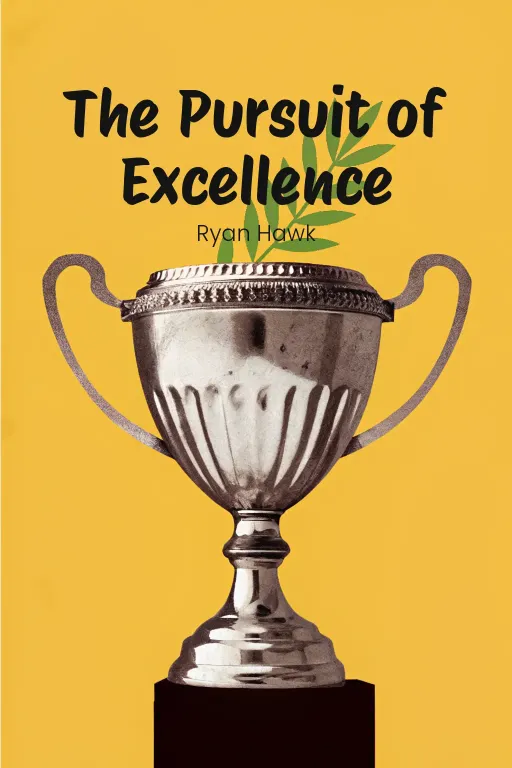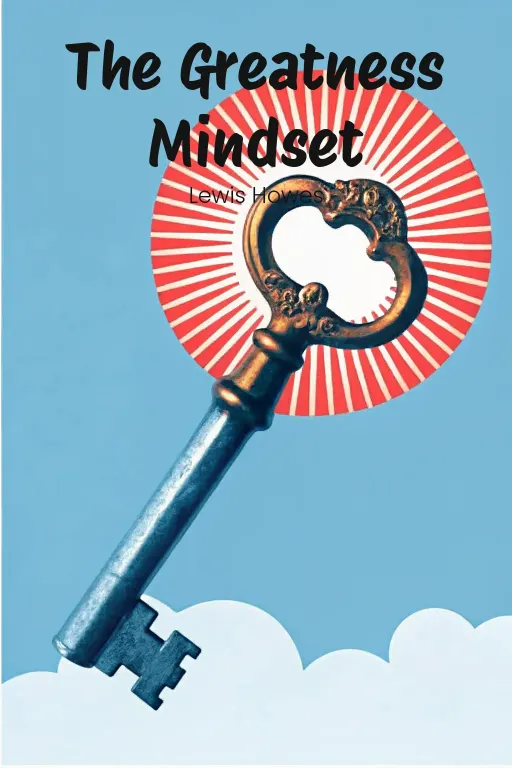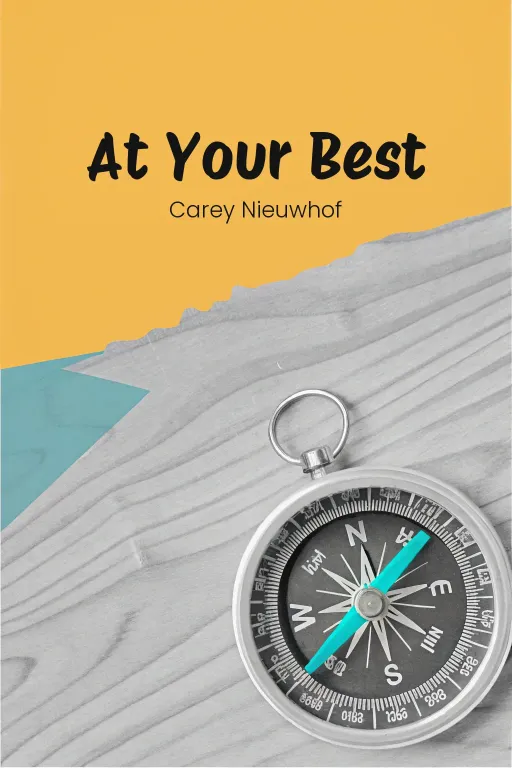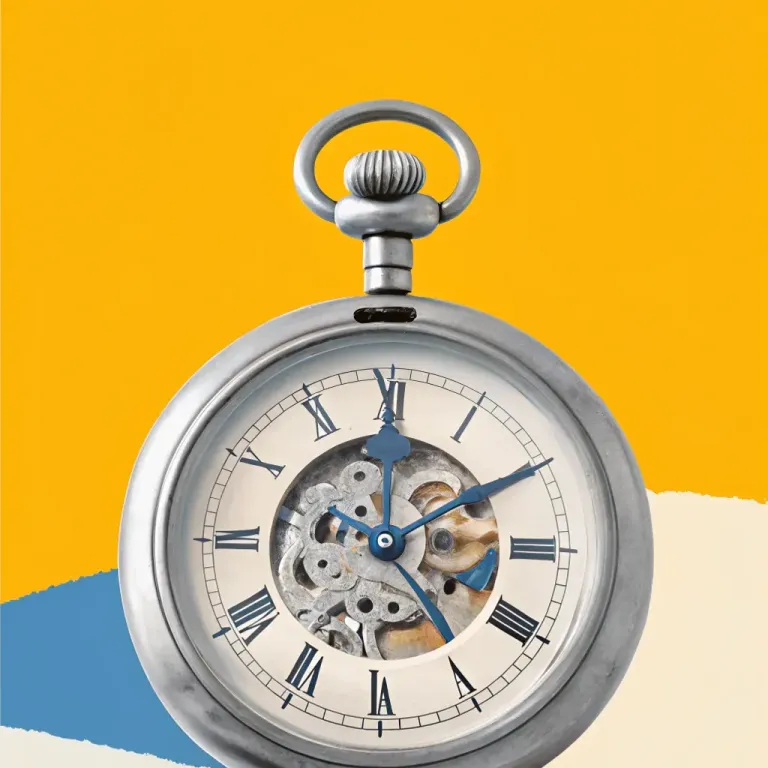
Stop the Hustle: Own Your 4000 Weeks
Podcast by Beta You with Alex and Michelle
Time Management for Mortals
Stop the Hustle: Own Your 4000 Weeks
Part 1
Alex: Hey everyone, welcome back to the show! Today we're diving into something we all grapple with: time. It always feels like we don't have enough, right? Michelle, did you realize that if you make it to 80, you're only looking at roughly 4,000 weeks on this earth? Michelle: Seriously? That’s all I get? My entire life boils down to a number less than the notifications on my phone? That's a bit depressing. Alex: Exactly! That's the kind of wake-up call Oliver Burkeman gives us in his book, Four Thousand Weeks: Time Management for Mortals. But this isn't your typical "get more done" guide, not at all. It actually argues that our obsession with productivity is often the problem, not the solution. Michelle: So, instead of optimizing my Google Calendar, Burkeman wants me to just… relax? That's a take. Alex: It's deeper than that. He basically says the secret to a good life isn't cramming as much as possible into every second. It's about “really” accepting our limitations, focusing on what truly matters, and being okay with the fact that we can't control everything. It's about uncertainty. Michelle: Okay, I’m listening. But that all sounds a little high-level. What exactly are we going to cover today? Alex: We're breaking down five key insights from that book. First, we're gonna face the reality of our limited time head-on—it's a bit scary, but totally necessary. Then, we’ll get into the traps of productivity culture, and why constantly trying to be more efficient often backfires. Michelle: I already feel like you're calling me out. Alex: Hang in there, because it gets better, I promise. We’ll talk about how embracing those limits can actually make your life richer. Also, how recognizing our "cosmic insignificance" can be surprisingly comforting. And finally, we'll dive into some real, practical ways to take back your time and your attention. Michelle: Cosmic insignificance? That’s not usually on my list of things to ponder. Alex: Trust me, this is great. It's like an antidote to all that pressure to be extraordinary. Burkeman's all about shifting your perspective and living more intentionally. Michelle: Alright, you’ve definitely piqued my interest. Let’s make sure these 4,000 weeks of ours are well spent.
The Finite Nature of Time
Part 2
Alex: Okay, let's dive in. So, Burkeman starts with something pretty fundamental: the finite nature of time. And he doesn't hold back. Life is short, like, painfully short. He says the average person gets about 4,000 weeks. And even someone who lives a super long life, like Jeanne Calment, only gets to around 6,400 weeks. I mean, really think about that. In the grand scheme of, well, everything, our lives are just a tiny blip. Michelle: So, what you're saying is, no matter how long we stick around, it’s still going to feel a bit brief when you compare it to, you know, forever. Fantastic. “Really” inspiring stuff, Alex. But seriously, what's the point of dwelling on how little time we have? Doesn't that just make people panic? Alex: Well, that's the interesting part, isn't it? Burkeman actually argues that it “shouldn't” be about despairing. It's about using the shortness of time as a way to clarify what's important. Once you truly get how fleeting life is, you start shedding all the distractions and focusing on what really matters to you. He even quotes Seneca, who said that the problem isn't that life is short, but that we waste so much of it. Michelle: Wasting life? I mean, what does that even look like these days? Everyone thinks they're busy with something important. Are you “really” wasting time if you're binge-watching a show but you enjoy it? Or if you spend hours answering emails just to keep your job? Alex: That's exactly the tension that Burkeman explores. He points out how modern society has turned life into this never-ending list of tasks, deadlines, and ways to measure how productive we are. People complain about being too busy, but often they fill their time with things that just don't align with what they actually care about. There's even a study he mentions where people were too busy to take a survey about feeling overworked! Michelle: Wow, that's a level of irony I'm pretty sure Seneca didn't see coming. But here’s the thing—aren’t we kind of forced onto that conveyor belt? Work, bills, endless errands… it’s not like most people can just step off and say, "Hey, I’d rather paint landscapes or meditate now." Alex: Right, there are definitely practical limitations, but Burkeman isn't saying we can just abandon all responsibility. Instead, he wants us to recognize how easily we fall into the trap of trying to be “too” efficient. Trying to optimize every single moment just makes the problem worse! Think about productivity apps. They're supposed to save us time, but often they just make us feel like we're failing even harder because that "optimized" to-do list never actually ends. Michelle: Yeah, I get that. You finish one thing and then you think, “Why aren't I already halfway through the next thing?” It's like digging a hole while someone else is throwing dirt back in. Alex: Exactly! You know, no amount of efficiency is going to create more hours in the day. So Burkeman suggests flipping the script. He says: accept that there will always be unfinished tasks, and make peace with that. Instead of trying to "do it all," focus deeply on a few things that are meaningful to you — and “really” savor them. Michelle: Okay, that sounds nice. But how do we decide what actually matters? When everything feels urgent all the time, how do you even make those choices? Alex: Yes, he addresses that, too. It's not about eliminating urgency altogether, it's about being intentional. Ask yourself: What is truly important to you in the long run? What brings you joy, or serves a larger purpose? Try to distinguish that from what is just noise. Like, responding to emails is often necessary, sure. But does that outweigh spending quality time with people that you care about? Michelle: Right, but to make those choices also means disappointing people or leaving things undone. We’re all so programmed to fear the consequences of saying “no.” Alex: Absolutely, and that’s when Burkeman suggests a major shift in mindset: embrace your limitations. Instead of fighting against the reality that you can’t do everything, see it as… freeing. You get to consciously choose what’s genuinely worth your time, even if it means strategically underachieving in other areas. Michelle: Strategic underachievement… I like that. Makes procrastination sound intentional and sophisticated. Alex: It's not about shirking responsibilities! It's about being more deeply engaged with fewer, more meaningful things. And this ties directly into what you mentioned before—cosmic insignificance. When you realize that your life is just one tiny thread in this vast tapestry, the pressure to do everything, be everything, and leave some kind of world-changing legacy suddenly feels… a bit overblown, right? Michelle: Are you telling me the universe doesn't care if I answer all my Slack messages before 5 p.m.? Revolutionary. Alex: Exactly! It might sound a little bleak at first, but Burkeman frames it as liberating. The universe's indifference reminds us that the only expectations we truly need to meet are our own. Instead of worrying about living up to some imaginary societal standard, focus inward on how you “really” want to spend your finite weeks.
The Efficiency Trap
Part 3
Alex: So, that realization kind of naturally makes you question how we’re even managing our time in the first place. And that brings us to what I think is one of Burkeman's strongest points—the efficiency trap. He really breaks down our modern obsession with productivity and how it might actually be stopping us from living more meaningful lives. Michelle: The efficiency trap, huh? Sounds like one of those things where the harder you try, the worse it gets, right? You pour all your energy into figuring out how to "do more with less," and you barely remember why you were doing it in the first place. Alex: Exactly! He describes it as this cultural myth – that being productive, or efficient, automatically equals success or fulfillment. But in reality, the more we chase efficiency – whether it's through, you know, apps, planners, you name it – the more overwhelmed and unsatisfied we tend to feel. It's almost like pouring water into a bucket with a hole in it. Michelle: That's… grim, but also painfully relatable. I mean, who hasn't fallen into that cycle? You finally plow through your to-do list, and then, bam, ten new things hit you the next morning. So, what's the root of this, according to Burkeman? Why do we do this to ourselves? Alex: Well, he argues that it's partly a societal construct. We’ve been conditioned to tie our self-worth to how busy and productive we are. It's almost like a badge of honor—if you're not juggling twenty things at once, are you even trying? Michelle: So true. You hear people say, "Oh, I'm swamped," almost like it's a humblebrag. Okay, so let's say I buy into all of this – that relentless busyness is a problem. What makes efficiency such a trap, though? Shouldn't productivity tools and methods, at least in theory, lighten the load? Alex: That's where the paradox kind of kicks in. These tools are supposed to make life easier, but Burkeman argues they can actually make it harder. The problem isn't the tools themselves – it's how they amplify this endless cycle of productivity. Like, the moment you adopt a new system to organize your tasks, you suddenly see everything laid out in front of you, all the unfinished business you've been ignoring. It doesn't feel satisfying; it feels... never-ending. Michelle: It's like turning on all the lights in a messy room. You see every dust bunny, every sock in the corner. So instead of tackling what actually matters, you're just drowning in the scale of the mess. Alex: Exactly. And it's not just about to-do lists. Think about how technology's fueling this. Digital tools make us available 24/7—emails, notifications, meetings, the works. And the result? Zero boundaries. You're never fully off the clock, and all that busyness just crowds out time for meaningful pursuits. He actually calls it “empty busyness”. Michelle: So, basically, we're digitally shackled to our tasks. Good times. But you know what's really insidious? That sense of guilt when you're not chasing efficiency. That moment when you put your phone down, maybe take a deep breath, and immediately think, "What am I forgetting to do?" Alex: That's exactly what Burkeman's getting at. The guilt stems from this unrealistic belief that we should be able to "master time." But time isn't something we can conquer – it's finite, messy, and pretty unpredictable. No app, no method, no amount of hustle is ever going to change that. Michelle: So, what’s his alternative then? Because I'm guessing it's not exactly "burn your to-do list and move to a cabin in the woods." Alex: No, although I’m sure some people have been tempted! But his approach is more about reframing. Instead of constantly striving to get more done, you focus on doing what truly matters — and accepting that a lot of things just won't get done. Think of what he calls “preselecting priorities.” It's about consciously deciding what you value your time and energy on, and just letting go of the rest. Michelle: Letting go… Sounds simple in theory, but brutal in practice, doesn't it? How do you even decide what to let slide? Alex: Well, that's the hard part – but also the freeing part! Imagine you're managing work, family, hobbies; it's impossible to do it all perfectly. So, instead of constantly multitasking and feeling inadequate, you deliberately choose what to prioritize. Maybe you decide a spotless house isn't as important as family dinners, or that answering every single email can wait. Michelle: I can see that, but it's such a slippery slope. Neglect one thing for too long, and suddenly it comes back to bite you, right? Alex: True, which is why the point isn't abandoning responsibilities completely. It’s strategic. He recommends limiting the number of commitments you take on at a time. So, you focus deeply on two or three meaningful things—whether that’s a work project, raising kids, or even, you know, just rediscovering a hobby—rather than spreading yourself thin across a dozen half-done goals. Michelle: Okay, that sounds more doable. But I still can't shake off the idea that this whole approach goes against everything we've been taught. Like, the more boxes you check, the better life gets. Alex: And that's precisely why Burkeman's argument is so challenging, Michelle. He's not just talking about time management; he's deconstructing societal norms – the idea that being busy automatically equals value, right? He's saying we need to actually reject that idea. Instead, he wants us to lean into our... limits, and stop treating them like, you know, personal failures. Michelle: Ah, limits as a strength—that’s a concept we don’t hear that often. So, what I’m getting is that by intentionally sitting out some things, you can make things feel... richer. Like, instead of rushing through life, maybe it's better to slow down and actually savor what's in front of you. Alex: Exactly! It's not about abandoning ambition—it's about redefining success. Burkeman wants us to see that this endless pursuit of more is kind of a dead end, you know? But, yeah, focusing on quality, not quantity? That’s where deeper satisfaction is.
Embracing Limitations
Part 4
Alex: So, understanding this trap leads us to explore different ways of thinking about time. And that brings us to a key idea in Burkeman's work: embracing our limitations. It's not just about passively accepting what we can't do, but actively using those limitations as a guide for living intentionally. We'll be looking at practical strategies that come from accepting that our time is finite—which sounds like a contradiction, I know! But trust me, it's incredibly powerful. Michelle: Okay, I'm ready. “Limitations as a strength” sounds like something on an office poster, but I have a feeling Burkeman digs a little deeper than that? Alex: Absolutely. First, Burkeman challenges us with something he calls "the fantasy of infinite time." It's that little voice in the back of our heads that says "someday" we'll catch up, get on top of everything, and have all the time in the world. But we know what “really” happens, right? Michelle: The to-do list just keeps growing, like a monster from a horror movie! Alex: Exactly! People keep adding more and more, thinking they're getting ahead, but they're “really” just spinning their wheels. Burkeman argues that acknowledging our limits actually frees us. Once we truly accept that we can't do it all, we can start making real choices about where to put our energy. Michelle: Hmm, it's like cleaning out your closet. You can't squeeze every single piece of clothing in there. At some point, you have to get rid of the old stuff and only keep what you actually use. But how does he suggest we actually make those choices? Because in real life, everything feels "urgent." Alex: Well, he has a few strategies. My favorite is "strategic underachievement." Basically, consciously deciding which areas of life you're going to "fail" at... or, more accurately, deprioritize. It's the opposite of what our culture tells us, which is to do everything. But if you think about it, spreading yourself too thin means you'll only be mediocre at everything. By focusing on fewer things, you can actually excel at what's important to you. Michelle: Okay, I see his point. But doesn't "strategic underachievement" just sound like an excuse for being lazy? What kind of "failures" are we talking about here? Alex: Not lazy! Intentional! Let's say you're trying to balance family life with a demanding job. Maybe you decide that making elaborate gourmet meals or keeping a spotless house isn't as important as spending quality time with your family at dinner. Letting go of some expectations—like having a picture-perfect home—frees up your energy to focus on deeper connections. Michelle: So I can strategically underachieve by not mowing the lawn for a few months? I'm sure my neighbors would love that! Alex: Well, maybe find a little balance! Generally, think about embracing imperfection in the areas that matter least, so you can give your all to what's most important. You can't be the perfect parent, colleague, or friend all the time—but you can fully embrace one of those roles in a given moment. Michelle: Okay, that makes sense. But the more you talk, the more I realize how much multitasking dominates our lives. It feels like modern life doesn't let us focus on one thing. We're always juggling, whether it's checking work emails during meals or scrolling through the news between meetings. How do we break free from that? Alex: Burkeman suggests "serializing projects." It's basically the opposite of multitasking. Instead of juggling five things at once, focus on completing one major project before moving on to the next. The idea is that going deep—not spreading yourself wide—leads to better results and a feeling of accomplishment. Michelle: Can you give me an example? Because juggling multiple things feels pretty unavoidable. Alex: Imagine a novelist who's also writing a blog, doing consulting work, and maybe even hosting a podcast. Multitasking feels "productive" because they're touching all those bases. But Burkeman would say that constantly switching focus hurts their creativity. If that novelist put all their energy into finishing the book first, their sense of accomplishment—and the quality of their work—would probably be much greater. Then, once the novel is done, they can turn to the next project with all their attention. Michelle: Okay, but let me push back a little. What if life doesn't let you narrow things down like that? What about deadlines, or other obligations? Things are always overlapping. How do you "serialize" chaos? Alex: That's a good point! Burkeman admits there will always be some overlap. But he suggests consciously prioritizing within that chaos. If you're juggling three things, accept that you're mainly focusing on one while the others have to wait. It's about acknowledging your limits without feeling guilty, and giving your full attention to the task you're doing. Michelle: That guilt is a big part of it, though. You're always thinking about what you haven't done, and suddenly even the things you have done don't feel like enough. Alex: That's why Burkeman recommends changing how we measure progress. That's where the "done list" comes in. Instead of endless to-do lists that just remind you of what's not finished, track what you have accomplished—even the small things. It can really change your mindset. Michelle: So… "ate lunch without looking at my phone" could go on the list? Alex: Absolutely! Small wins count. Writing down "completed budget draft" or even "made a dentist appointment" helps you focus on what you've achieved. Over time, this can help fight that feeling of not being good enough. Michelle: Okay, I'm starting to like this idea. But one thing still bothers me: doesn't modern life still demand that we be perfect? People expect results, from your colleagues and family, even just your own inner critic. Alex: Which leads us to another one of Burkeman's points: rejecting the myth of perfection. We're told to constantly improve ourselves—at work, at home, even in our hobbies. But this obsession with improvement comes at the cost of actually being present in the moment. Think about hosting a simple dinner for friends. A host who's obsessed with perfection might spend more time on the perfect table setting than on actually talking to their guests. Meanwhile, a "good-enough" host who serves a store-bought dessert might end up having a more fun and meaningful evening. Michelle: So instead of Martha Stewart perfection, we're aiming for… a relatable person who has their act together and creates a good atmosphere? Alex: Exactly! Burkeman's point is that life isn't a Pinterest board—it's messy. Accepting imperfections, whether it's in your work or your relationships, helps you focus on actually engaging with life, instead of just trying to look good. Michelle: Alright, I see the logic. Embracing limits, rejecting perfection, focusing deeply—it's all about narrowing life down to what matters most. It's definitely a different way of thinking. Alex: It is! But once you stop trying to manage time and start working with it, you realize there's room for fulfillment—even within the limits of time. Burkeman reminds us: our limits don't make life smaller. They define it and enrich it.
Existential Realities and Meaning
Part 5
Alex: This shift in mindset really opens you up to some deeper thinking about existence. And that brings us to one of the most powerful themes in Oliver Burkeman's book: existential realities and meaning. The way he connects these big philosophical ideas – like, you know, how small we all are in the grand scheme of things – to the choices we make every day is just so profound, and surprisingly practical. He argues that by understanding our cosmic insignificance, we can actually live with more intention. Michelle: “Cosmic insignificance therapy.” I still can’t decide if that sounds like something you'd pay a therapist to help you get through… or the name of some New Age spa experience where you just stare at the stars and, well, cry. Alex: Definitely more than a spa treatment, Michelle! Burkeman's point is that really grappling with just how small and fleeting our lives are isn’t depressing - it’s actually an invitation to let go of the pressure to achieve something earth-shattering, and to just focus on what truly gives our lives meaning. Michelle: Oh, so don't, like, stress about being the next Shakespeare. Just, you know, write your local book club notes with love and intention? I admit there's something pretty liberating about that concept. But also, a little terrifying. Why do you think it resonates so deeply with people? Alex: Because it goes against this almost universal need we feel to be extraordinary. We're constantly bombarded with the idea that we need to leave some grand legacy to, I don’t know, “justify” our existence somehow. But Burkeman's argument – and honestly, it’s kind of a relief to hear – is that it’s okay to let go of that expectation. We might not leave a mark on history, but the meaning we create in our relationships, in those small, significant moments, is enough. Michelle: “Enough.” That's a loaded word, Alex, right? Society seems to teach us to reject “enough” in favor of “more” – more success, more fame, more influence… So how does getting comfortable with our smallness actually work? Alex: He uses such a great analogy. Think of life like adding one brushstroke to this giant mural. Your single stroke is tiny, insignificant compared to the whole thing, but without it, the mural isn’t complete. He references Bryan Magee, the philosopher, who points out that even the grandest civilizations live and then fade away in the blink of an eye. Things we consider monumental are just fleeting specks in the timeline of human history. Understanding that puts our individual lives in perspective. We don’t have to be the entire mural; a tiny contribution can still matter. Michelle: So it's not about giving up on importance altogether, but about, you know, recalibrating what matters. But let me push back on that a little bit. If we’re all just these tiny brushstrokes, is Burkeman suggesting we stop striving, stop trying to improve the world, or reach for those big dreams? Alex: Not at all. Striving is just part of being human. He’s not against ambition, he's just against ambition becoming the only way we measure a life well-lived. If you focus solely on those monumental achievements, you risk missing all the day-to-day joys that really define most of life. Like, he uses this example that's so simple, yet so telling – making a meal for your loved ones. Michelle: Ah, cooking for family – the hallmark of small-scale significance. Alex: Exactly. It’s not about impressing anyone with this, like, five-course feast. It’s about the warmth of gathering, laughing over a shared meal, finding connection in the act itself, rather than seeking some external validation. These "small" moments of fulfillment, that's where the richness lies. And Burkeman’s basically encouraging us to lean into them. Michelle: You know, it's funny you say that, because I feel like dinner has become this cultural battleground. There's pressure to “Instagram the perfect plate,” and suddenly even eating feels performative. But okay, let's say I buy into this whole idea that the small stuff matters more. What about the looming question – if not legacy or societal markers, how do we define fulfillment? Alex: Fantastic question. For Burkeman, fulfillment is about cultivating meaning through presence and intentionality. And that’s going to look different for just about everyone. Take creativity, for instance. He points out that the worth of creative acts exists independently of recognition or external success. Writing a novel, sewing a quilt, painting – even if literally no one ever sees the result, the act of creating just… gives your life shape and purpose. Michelle: So the journey really does trump the destination, huh. But I bet some people struggle to separate the creative process from, say, wanting an audience. We’re all encouraged to frame everything as part of some bigger achievement, right? I mean, is it even possible to create without any external stakes? Alex: Burkeman would argue it kind of has to be. Focusing solely on external validation is exactly what distorts the whole experience, you know? When the act itself – whether it's writing, gardening, or even just cooking – is the end goal, it becomes enriching simply because you're engaging with it. When you disconnect creativity from competition or legacy, you rediscover the joy of the process. Michelle: That's such an appealing idea, but again, it's not exactly what we're conditioned for. I mean, society doesn't exactly reward you for quietly painting sunsets for yourself. Alex: And yet, that’s where Burkeman’s challenge lies. He wants us to let go of these ingrained societal narratives. Think back to the global pandemic – when the world just kinda hit pause for a while, you know, people just naturally began re-evaluating. Suddenly, they had space to reflect on what really mattered in their lives. Remember those stories of people sharing meals as families for the first time in years, neighbors helping neighbors, people reconnecting with hobbies they'd just abandoned decades ago? Michelle: Oh yeah, the "Great Pause," as Julio Vincent Gambuto called it. How life's busyness just came to a screeching halt and people started questioning whether all that, you know, pre-pandemic hustle thing was even worth it. Alex: Exactly! Burkeman highlights this period as a real illustration of what happens when we step off the treadmill. For tons of people, it led to clarity: a real realization that fulfillment comes from simplicity, from connection, from just following joy. Now, sure, life has picked back up again, but the real question becomes how do we protect those lessons that we learned? How do we avoid falling back into relentless busyness? Michelle: Hmm, so it's not just about embracing reprieves like the pandemic pause, but about actively building those values into your life every day. But Alex, let's be honest here, okay? There's resistance to this. Slow down too much and you risk being seen as unambitious, or even lazy. How do people move past that judgment, either from society or from themselves? Alex: It’s not easy - I won’t pretend otherwise. But Burkeman suggests reframing those internal metrics for success. Instead of worrying how you're perceived, ask yourself, "Is this enriching my finite time, or am I doing it out of, you know, obligation, fear, or some outdated belief in productivity at all costs?" Often, you'll find that the imagined benefits of overwork or over-commitment pale next to the quieter joys of really prioritizing your personal well-being. Michelle: It's fascinating, really. By really accepting we can’t have it all or do everything, we actually liberate ourselves to find more meaning in the things we can. Sort of paradoxically, the smaller the scope, the deeper it gets. Alex: Exactly. Burkeman beautifully articulates how embracing limits is truly a pathway to richness, not deprivation. Real meaning doesn’t demand we be extraordinary. It just asks us to be present, to find depth in simple acts: kindness, laughter, creation… When we do that, we free ourselves not just to live, but to really savor life’s fleeting beauty.
Practical Tools for Mindful Living
Part 6
Alex: Okay, so all of these thoughts really boil down to some actionable steps for a more fulfilling life. Which leads us to the most important part—practical tools for mindful living, right? This is where Oliver Burkeman takes all of those deep thoughts we’ve been talking about and turns them into real, everyday strategies. It's about taking those ideas from earlier—like accepting limits and forgetting those productivity myths we always hear—and making them into habits that actually stick. Michelle: Totally, taking all of that theory and turning it into, “Okay, this is how you actually stop feeling like you’re wasting time and start living a meaningful life.” So, what’s the first thing in Burkeman’s toolbox? Alex: So, let’s start with "fixed-volume productivity." It’s a really simple idea: you just can't do it all, so stop trying to. Oliver Burkeman says we should cut down on what we’re trying to do—not by working harder, but by knowing our limits and setting some rules for ourselves. And to do that, he talks about having an "open list" and a "closed list." Michelle: Okay, tell me more. Are we talking about making two to-do lists now? I can barely handle one! How is that even helpful? Alex: Actually, it makes things less crazy. The open list is where you put everything—all those little things you want to do, without worrying about actually doing them all. It’s just a place to keep track of your ideas. Then, the closed list is shorter—maybe ten things at a time. You can’t add anything new until you finish something on that list. It helps you decide what's important and stops you from getting swamped with too much to do. Michelle: I see, so it's like picking and choosing your to-dos. Only the super important ones make it to the “closed” list, and the rest just hang out on the open list. But what about feeling bad? You know, feeling like you’re failing because that open list is always there, reminding you of everything you haven’t done yet? Alex: That’s what’s so great about this! It changes how we think about getting things done. When you keep the closed list small, you can really focus on the things you choose to do. So instead of feeling guilty about the things on the open list, you can celebrate what you’re actually doing. The focus shifts to “what’s really worth doing?” instead of “how much can I possibly do?” Michelle: I can see that working, at least in theory. But having a huge open list looming over me still feels kind of… stressful. How do you keep it from stressing you out? Alex: By getting good at letting things go, right? Oliver Burkeman says we’re always going to have unfinished tasks—that’s just how it is. And it’s freeing to accept that. You don’t have to “finish” the open list; it’s just there to help you decide what’s important. The rest can just sit there, and that’s fine. Michelle: Hmm… feels like a manifesto for people who hate inbox zero. Okay, that actually makes sense. What’s next? Alex: Next up, we have “serializing projects.” We’ve all tried to multitask—doing a bunch of things at once because we think it saves time. But Oliver Burkeman says multitasking actually makes us lose focus, and it actually takes longer to do everything. So, he says we should just work on one project at a time before starting another. Michelle: Wait, he wants us to completely stop multitasking? That sounds crazy! And scary, to be honest. What if you have to multitask? Like, when you have a million deadlines and you have no choice but to switch between them? Alex: He knows that’s going to happen sometimes. You can’t be perfect about it. But the main goal is prioritizing. For example, if you’re trying to juggle your job and family stuff, instead of trying to do everything all at once, try to spend focused time on each one. Even when things are crazy, you can still find moments to really focus. It’s training yourself to go deep, not wide. Michelle: Going deep instead of wide... that almost sounds impossible in today’s world of constant notifications and endless browser tabs. How do you even train your brain to do that? Alex: It takes time and effort. Start small. Try to set aside time to just focus on one thing—no distractions. Over time, you’ll get better at focusing for longer periods. And it’s hard in today’s world because, like Oliver Burkeman says, our tools are actually designed to grab our attention. Michelle: Exactly! I feel like my phone is more of an attention trap than a tool these days. Which I suppose leads us to something else he talks about: taking back our focus in this age of technology. Alex: Exactly. Oliver Burkeman talks about “digital simplicity.” He doesn’t want us to get rid of technology, but instead to make it boring. He suggests using devices that are meant for one thing, like swapping your smartphone for an e-reader or just using a basic flip phone. Even small things, like changing your phone to black and white, can make it less addicting. Michelle: Black and white? That’s a clever way to avoid those dopamine hits from apps. But does he have any tips we can use today without buying new gadgets or completely changing our digital lives? Alex: Definitely. He recommends things like turning off notifications or using apps that block other apps when you need to focus. The idea is to set boundaries for your attention—to cut through all the noise so you can have more time to think and focus. Michelle: I am on board with that. But let’s get back to the emotional side of things, because all of this feels like "not enough," right? Even when we get more done, we still tend to focus on what’s left undone. What does Oliver Burkeman suggest to help us feel better about our progress? Alex: That’s where his idea of the “done list” comes in. Instead of focusing on what’s not on your to-do list, he says you should make a list of what you have done—even if it’s something small like "did the dishes" or "answered an email." The done list helps you see how much you’ve accomplished. It's an easy way to acknowledge and celebrate your efforts. Michelle: That’s a really simple change, but it could make a big difference. It’s funny how much we focus on what's missing, isn’t it? Alex: Totally. The done list is a great way to balance that out. It helps you appreciate what you’ve done instead of worrying about what you haven’t. And when you see all those small wins day after day, you start to feel capable instead of inadequate. Michelle: So, it’s like flipping productivity on its head: it’s not about finishing everything, it’s about being purposeful while celebrating what you accomplish. Okay, Alex, what’s the last thing on the list? Alex: Okay, so the last piece ties it all together: deliberately choosing to underachieve. This is one of Oliver Burkeman’s more daring ideas—that we should stop trying to be amazing at everything and instead pick a few things to intentionally “fail” at. Not because we're lazy, but because trying to do it all stretches us too thin. Michelle: Choosing to fail on purpose? Risky way to put it, but I’m listening. How does that actually work? Alex: Think about a working parent, for example. Instead of trying to have a perfect home, a thriving career, and be a perfect parent, they might decide to focus less on things like having a perfect lawn or a spotless house, so they can spend more time on what “really” matters, like reading a bedtime story or cooking dinner together. Michelle: Okay, playing devil's advocate here, won’t people judge you for letting some things slide? Society still loves to blame people for not being perfect. Alex: And that’s part of what Oliver Burkeman wants us to think about. Living on purpose means embracing not being perfect, but it also means standing up to those social expectations that say being busy or organized is better. It’s about escaping that need for outside approval and deciding what success means to you. Michelle: Okay, so the point is clarity, focus, and purpose—not just in our schedules, but in how we see ourselves. It’s like Oliver Burkeman’s saying: once you accept your limits, the life you create within them becomes much richer. Alex: Exactly.
Conclusion
Part 7
Alex: So, to bring everything together, “Four Thousand Weeks” basically tells us that a meaningful life isn't about becoming time management gurus or packing every second full. It's about accepting that our time here is limited, releasing that urge to do everything, and really focusing on what gives our lives substance—relationships, creativity, and those moments where we're truly present. Michelle: Right, so instead of wrestling with our limitations, Burkeman’s saying we should see them as the very structure that guides us to live intentionally. Accept that things won't be perfect, ditch the productivity obsession, and slow down enough that you can actually enjoy the ride. It’s almost subversive, isn’t it? Alex: Absolutely! So, a little challenge for our listeners: What's one thing on your to-do list you can just... let go of today? Where can you intentionally direct your time to create more joy or meaning? Start small, but make a start—because life really is too short to spend it just rushing through tasks. Michelle: Or, as Burkeman might put it, stop trying to be some kind of superhero with a perfectly organized schedule. Maybe the real win is just being a person who is genuinely, deeply alive.
